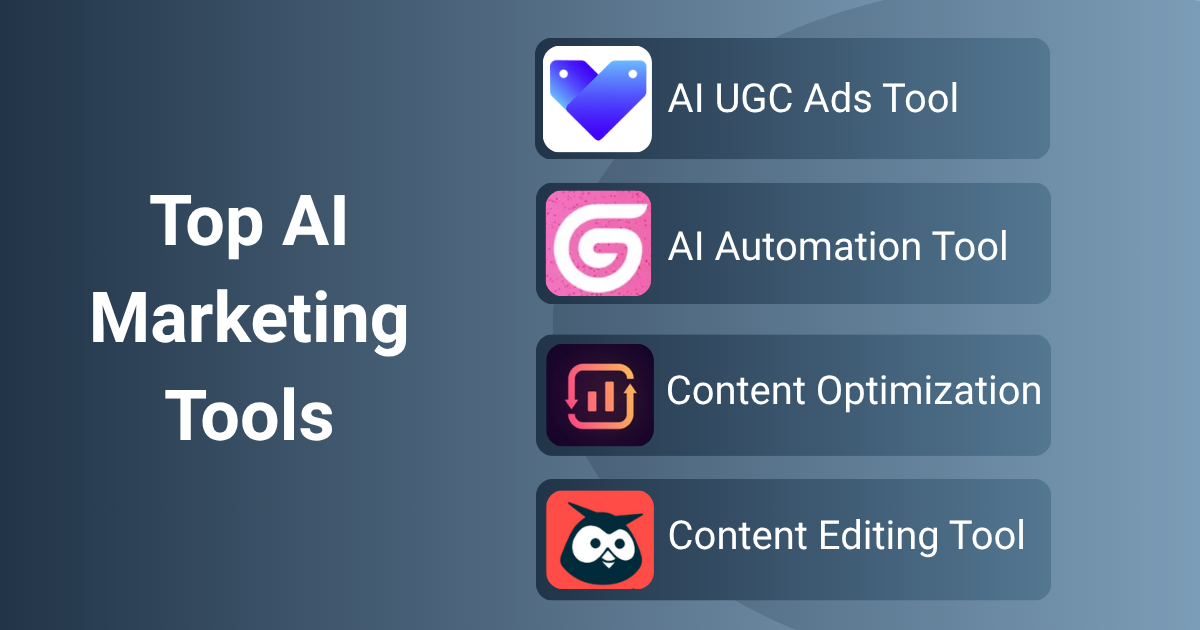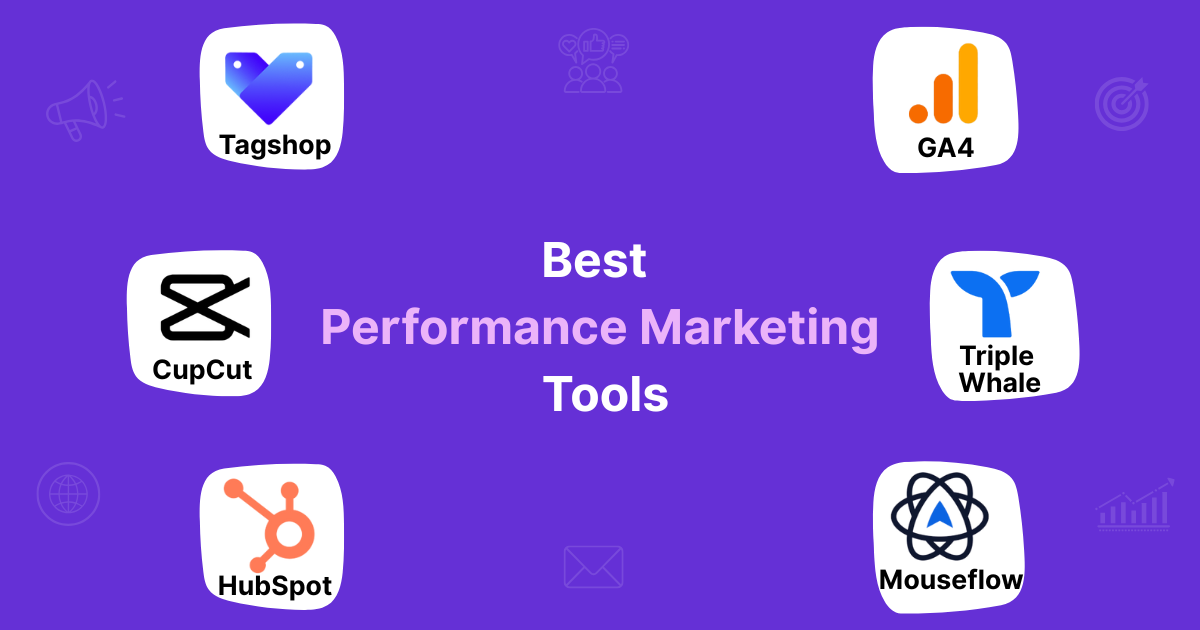21 Must-Have AI Marketing Tools: Smarter, Faster, Better
Ever feel like marketing strategies move faster than you can keep up?
Same. We all have been there – juggling content, social media, emails, and analytics, all while trying to be consistent and creative. That’s why I started exploring AI marketing tools, and honestly, they’ve changed the way I work.
If you’re wondering how to use AI in marketing to your advantage, these tools have allowed me to create blogs and visual content faster than ever using AI.. Believe it or not, AI is helping to save time, stay organized, and do more with less effort!
If you are also looking to make your workflow a little smarter, here are 21 AI marketing tools I’ve found super useful in 2026.
But before that, let’s first thoroughly understand what AI in marketing is!
What is AI in Marketing?
AI for marketing isn’t just another trend, it’s the behind-the-scenes powerhouse transforming how brands connect with you and me. To put it simply, AI for marketing means using intelligent tools and tech (such as machine learning, data analytics, and even avatars) to make faster and more personalized decisions.
Marketing today isn’t like how it used to be. Using AI, we can understand what our customers want, when they want it, and how they want to hear about it, instead of just relying on gut instinct.
Be it product recommendations or crafting personalized emails, AI is turning marketing into a science of precision and speed. Well, no wonder the AI marketing industry is on track to grow at a whopping 26.7% CAGR by 2034. But that’s just the current scenario. Let’s see how AI has evolved since its inception!
Best AI Marketing Tools & Softwares in 2026
Being in the marketing industry, I’ve seen firsthand how fast AI is transforming the way we work. With new tools launching every other day, the internet’s packed with options—some great, some not so much. I’ve personally tried and tested a bunch of them, and have rounded up the 21 best AI marketing tools and software in 2026 that are actually worth your time.
1. ContentShake AI (for SEO blog writing)
I’ve used ContentShake AI when I needed to create SEO-optimized blog posts quickly without sacrificing quality. It combines Semrush’s SEO data with AI writing tools, making it super easy to generate keyword-rich content that’s ready to publish.

Key features:
- Keyword-driven blog ideas and outlines
- SEO-optimized full-length blog drafts
- Built-in Semrush integration for better targeting
- One-click publishing to your site
- Great for solo marketers or small teams
Pricing: Free
2. Gumloop (for AI automations)
Gumloop has helped me automate some of the trickier parts of marketing without writing a single line of code. From SEO checks to lead scoring, I’ve been able to build custom workflows with just drag-and-drop tools.
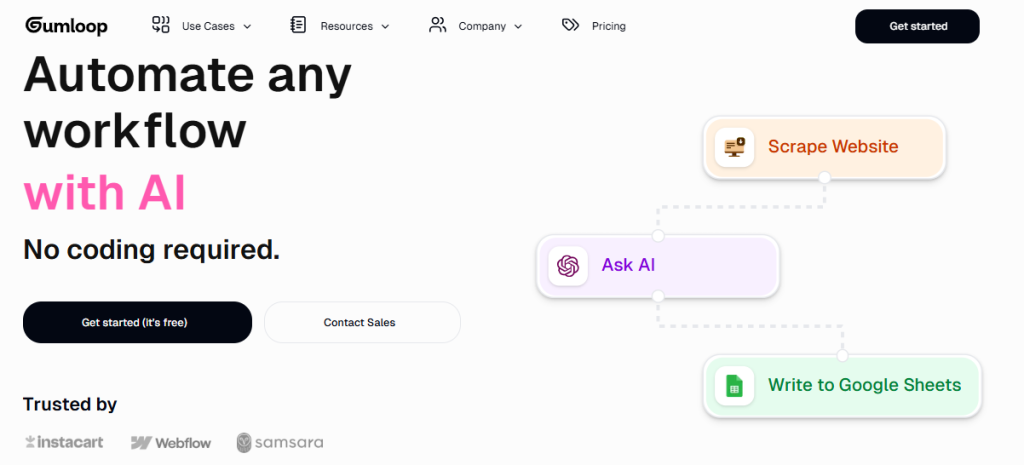
Key Features:
- No-code builder for custom AI workflows
- Automate tasks like content audits and lead scoring
- Integrations with Semrush, Google Analytics, and Slack
- Streamlines repetitive marketing operations
- Flexible for both simple and advanced use cases
Pricing: Starts at $97/month
3. Tagshop (AI Ads Generator)
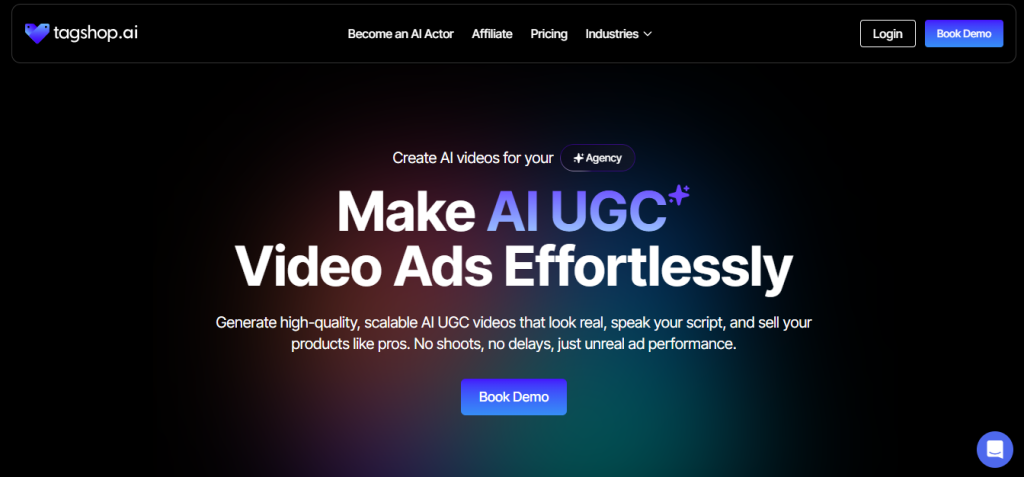
Tagshop has been one of the most impressive tools I’ve worked with for creating video ads. This powerful AI marketing platform also includes an Image to AI Avatar Generator that turns product images into lifelike avatars for your campaigns. It generates multiple realistic AI ads in just minutes. All I need is a product URL, and it instantly generates high-converting videos—complete with AI avatars, voiceovers, and scripts tailored for platforms like TikTok, Meta, and YouTube. It’s made ad creation not only faster but way more scalable.
Key Features:
- Generates video ads from just a product URL and you can change product background
- Realistic AI avatars with lifelike voiceovers and lip-syncing
- Platform-optimized videos for Meta, TikTok, and YouTube
- Customizable scripts for brand-specific messaging
- Scale ad production without blowing up your budget
Pricing: Starts at $23/month

4. Surfer SEO (for content optimization)
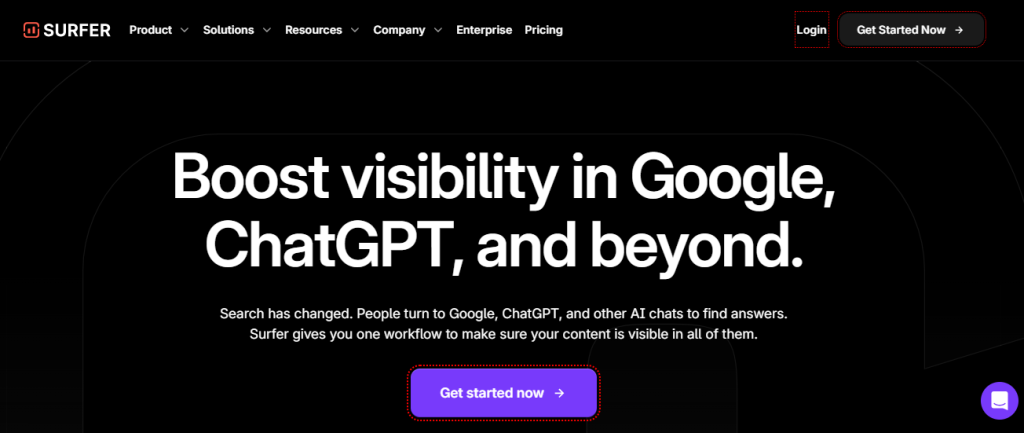
Surfer SEO is a great tool to write and optimize content. It gives real-time feedback while I write, suggesting keywords, structure, and even word count, so I can make sure my blog is both readable and rank-worthy.
Key Features:
- Real-time content scoring while writing
- SEO keyword suggestions and guidelines
- Smart structural and paragraph-level tips
- Content Editor with AI integrations
- Helps improve organic rankings with data-driven input
Pricing: Starts at $79/month
5. Mailmodo
Mailmodo is an AI-driven email marketing platform that empowers businesses to harness artificial intelligence for their email campaigns. The platform uses AI to create compelling emails, build sophisticated customer journeys, automate complex campaigns, and deliver intelligent performance reports.
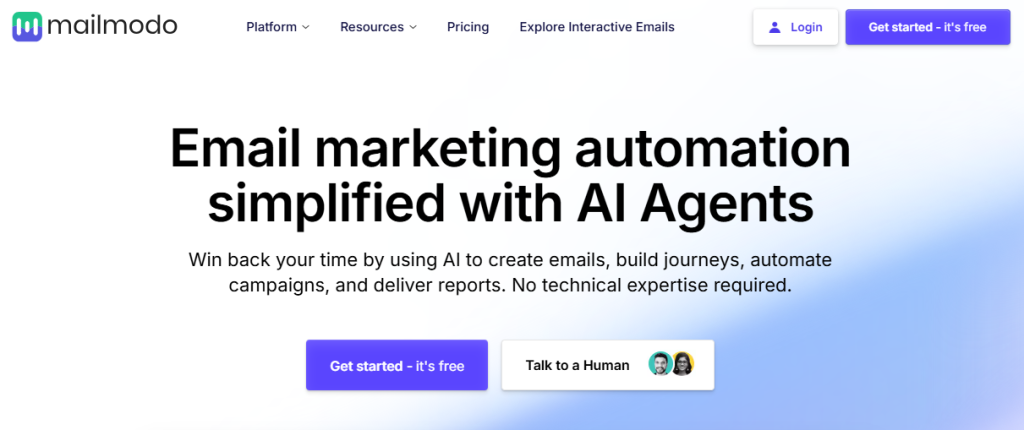
Additionally, the platform features a user-friendly, drag-and-drop builder and enables the creation of interactive, AMP-powered emails where users can complete forms, take quizzes, and make purchases directly within the email interface.
Key Features
- Simple drag-and-drop template builder.
- Dynamic segmentation based on behavior and data.
- Automated drip sequences to nurture donors.
- Deep analytics to track interactions and conversions.
- An integrated AI assistant that generates high-performing email copy.
Pricing: Plans start at $49 per month
6. Notion AI (for productivity)
Notion AI has helped me organize my work better, especially when juggling multiple projects. From writing quick notes to pulling up research and summarizing meetings, it’s become an essential tool in my daily workflow.
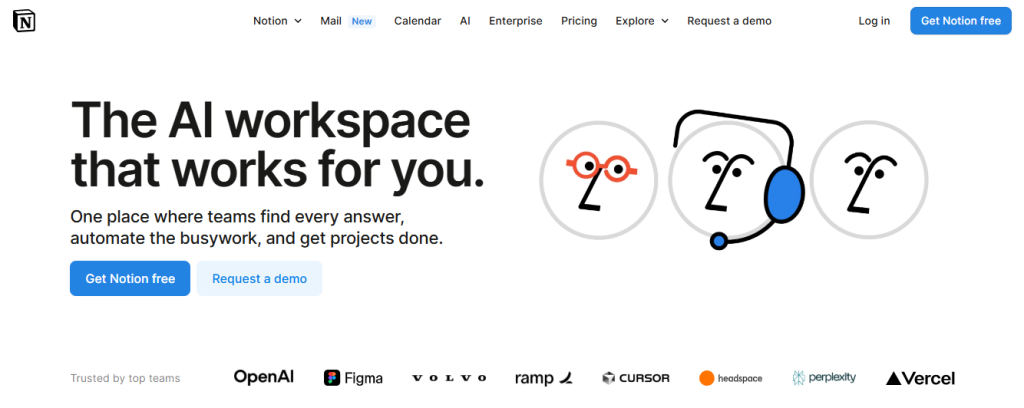
Key Features:
- AI Meeting Notes and Summaries
- Research Mode for quick data lookups
- Enterprise Search across docs
- Smart task and document suggestions
- Calendar integration and data visualization
Pricing: Starts at $10 per member/month
7. Jasper AI (for copywriting)
I’ve used Jasper AI for creating ad copy, emails, and landing page content—and it’s made the whole process much faster. With templates and a built-in Brand Voice, I can stay consistent while scaling content across different platforms.
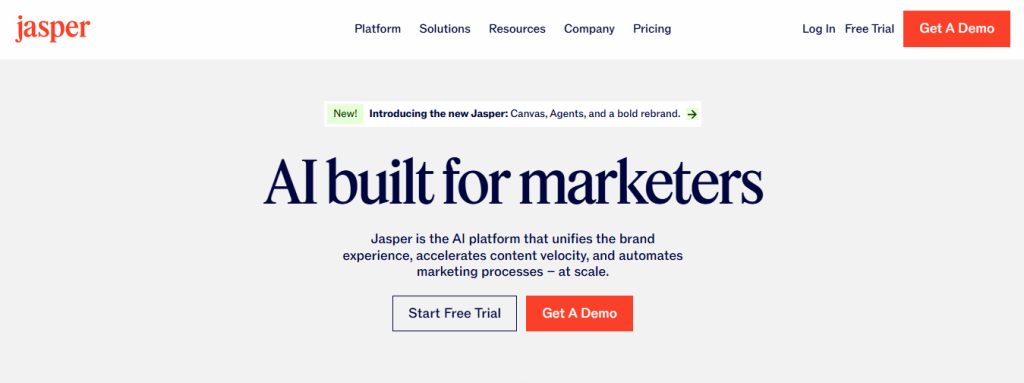
Key Features:
- 90+ templates for various content types
- Brand Voice and Style Guide for tone consistency
- Jasper Chat for quick content assistance
- Marketing Editor for structured, high-performing copy
- Great for teams and solo creators alike
Pricing: Starts at $39/month
8. Lexica Art (for blog thumbnails)
Lexica Art has been really helpful whenever I need blog thumbnails that stand out. With just a text prompt, I can generate unique, copyright-free images that fit my content perfectly—no design skills needed.

Key Features:
- AI-generated, copyright-free visuals
- Prompt-based image creation
- Huge library of creative art styles
- Easy customization options
- Ideal for consistent blog branding
Pricing: Starts at $8/month
9. LALAL.AI (for audio recordings)
LALAL.AI has been my go-to for audio separation. Whether I’m editing video content or cleaning up background noise, it helps me extract vocals and instruments accurately without losing quality.
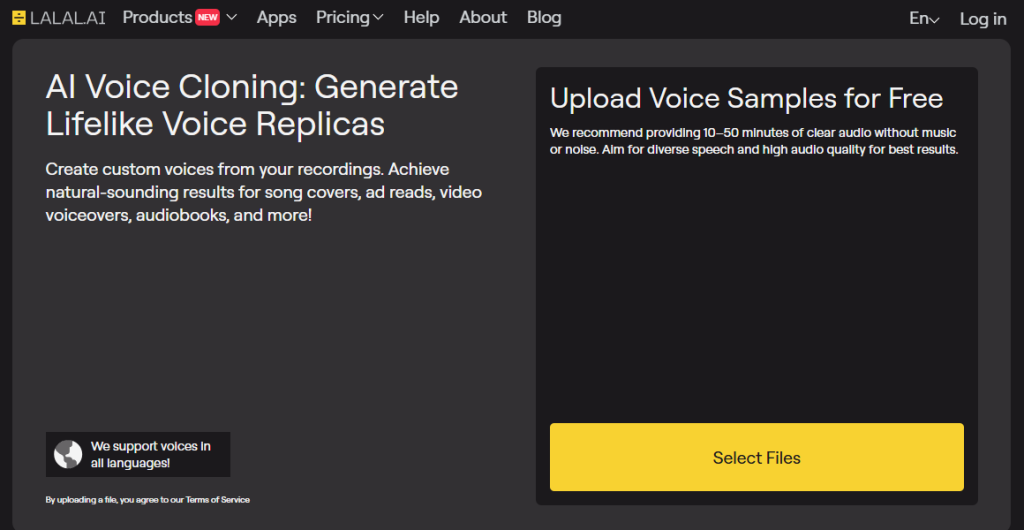
Key features:
- Separate vocals, instruments, and more from audio/video
- Enhanced Processing and De-Echo for cleaner output
- High-quality results with minimal effort
- Batch processing support
- Beginner-friendly interface
Pricing: Starts at $7/month
10. Crayo (for short-form videos)
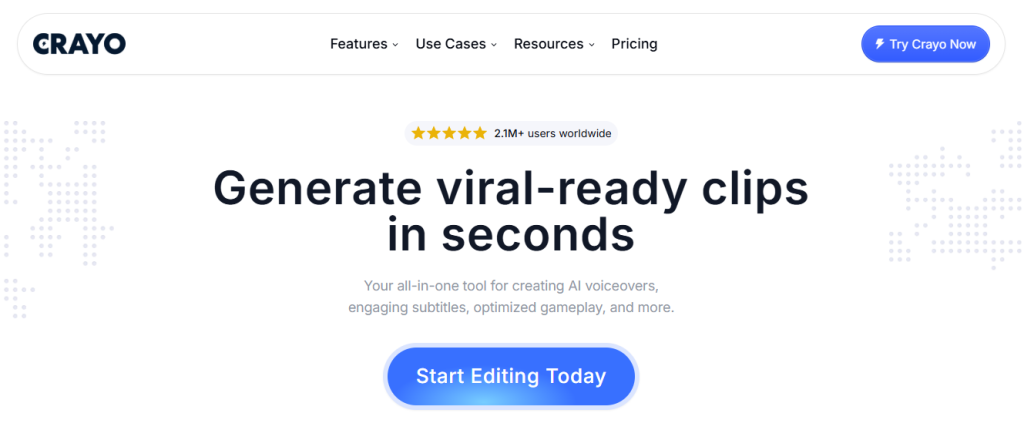
Crayo is a great tool I’ve used for creating short-form videos quickly. I just add a prompt or script, and it handles everything—from visuals and captions to music and effects. Perfect for platforms like TikTok and Instagram.
Key Features
- Simple prompt-to-video creation
- Auto-captions, music, effects, and backgrounds
- Templates for fake chats, Reddit stories, gameplay clips
- Easy to use, even for non-editors
- Ready-made formats for social media
Pricing: Starts at $19/month
11. BrandWell (for generating SEO blog posts)
As someone who writes regularly, I’ve found BrandWell incredibly helpful for producing SEO-optimized blogs quickly. It takes a keyword and turns it into a full-length blog post—complete with structure, meta descriptions, and internal links—within minutes.
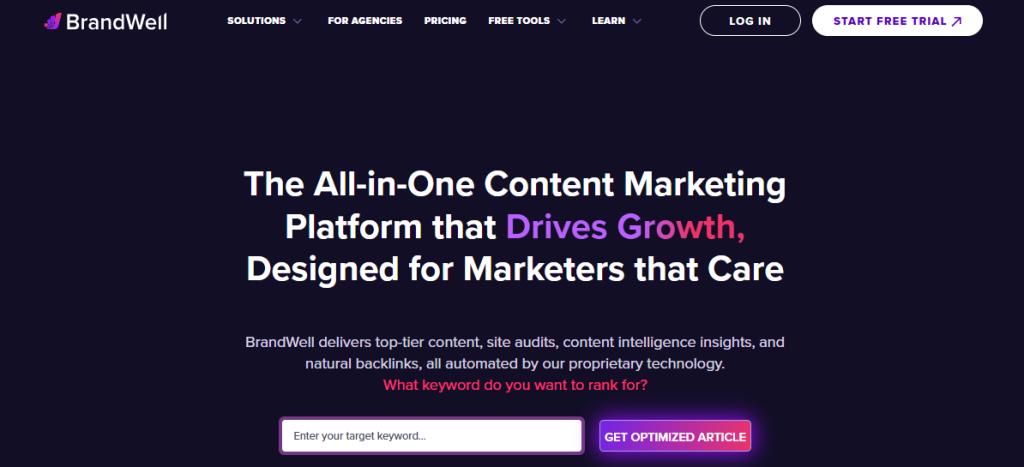
Key features:
- Generate full SEO blogs using just a keyword
- RankWell suggestions based on top-ranking pages
- Real-time keyword and SEO guidance
- Customizable blog templates
- WordPress integration for easy publishing
Pricing: Starts at $249/month
12. Originality.AI (for AI content detection)
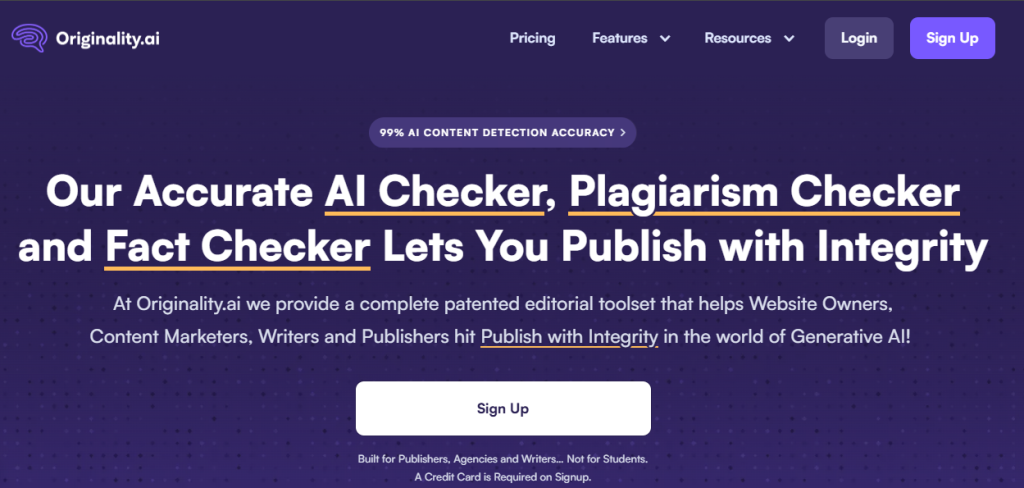
Originality.AI is a reliable tool for checking whether content is AI-generated, which is crucial when working with multiple writers or contributors. It also doubles as a plagiarism checker and helps ensure all content meets originality standards.
Key features:
- AI-generated content detection
- Plagiarism checks
- Readability scoring and grammar analysis
- Fact-checking tools
- Website scanning for full audits
Pricing: Starts at $12.95/month
13. Writer.com (content writing for teams)
I’ve used Writer.com for team-based content projects, and it’s great for keeping everyone aligned. It ensures consistency in tone, grammar, and branding across everything we publish, especially when multiple people are contributing.

Key Features:
- Real-time grammar and writing suggestions
- AI-assisted writing tailored to brand voice
- Centralized style guide and terminology
- On-brand writing suggestions for all team members
- Integrations with tools like Google Docs and Slack
Pricing: Starts at $29/month
14. Undetectable AI (For Rewriting AI Content)
I stumbled upon Undetectable AI while trying to humanize some AI-generated content—and wow, it actually worked! It’s one of the few AI marketing tools I’ve used that truly helps content pass AI detectors without sounding robotic.
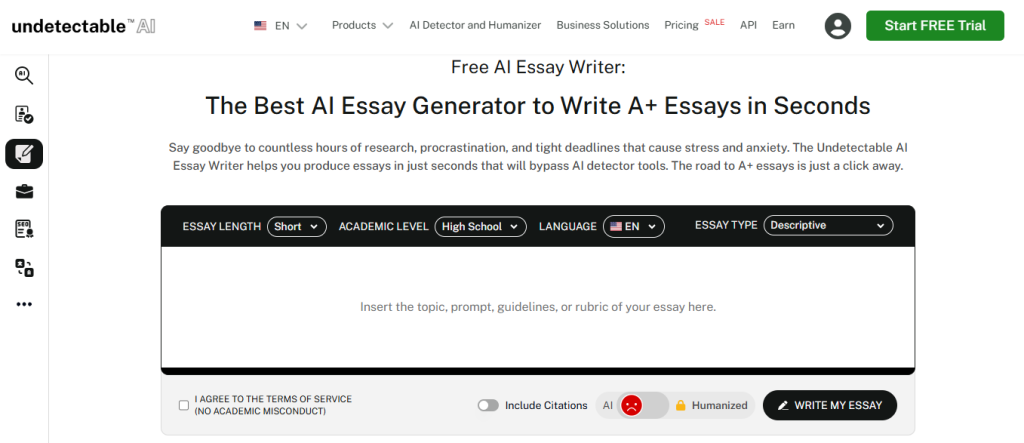
Key Features:
- Passes AI detectors effortlessly
- High-quality, readable output that doesn’t scream “AI”
- Watermark-free and future-proof
- Let’s you match the writing level (from casual to academic)
- Offers API access for bulk workflows
- Comes with Unlimited Human Auto Typer and Smart Applier
- Includes AI detection and rewriting tools in one place
Pricing: Starts at $19/month
15. FullStory (For Digital Experiences)
I added FullStory to my toolkit when I wanted to really understand how people interact with my landing pages. As far as AI marketing tools go, this one’s a game-changer for digital journey optimization.
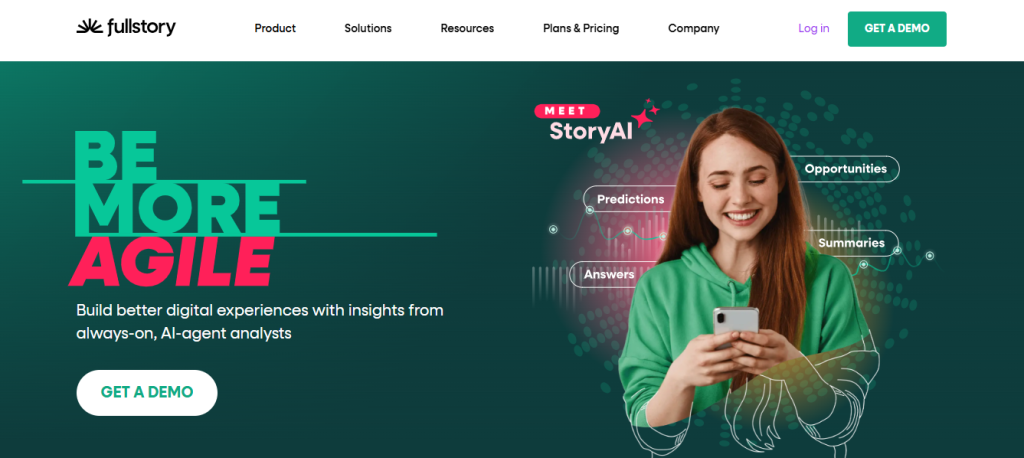
Key Features:
- Session replay to watch real-time user behavior
- Funnel insights that tell you where users drop off
- Journey mapping for better UX decisions
- Custom event tracking for pinpoint accuracy
Pricing: Available on request
16. Zapier (For Automating Tasks)
When I needed to connect all my AI marketing tools without getting IT involved, Zapier became my go-to. I’ve built and shipped full workflows in minutes—zero coding, zero stress.
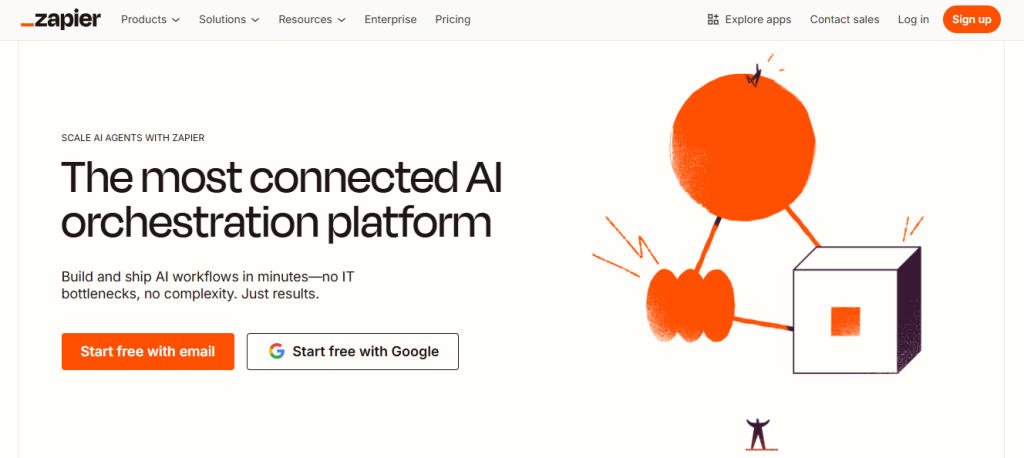
Key Features:
- AI-powered chatbots that handle customer queries
- Built-in AI assistance for quick workflow creation
- Deployable AI Agents to automate repetitive tasks
- Build custom AI that integrates across your stack
Pricing: Starts at £15.17/month
17. Hemingway App (For Content Editing)
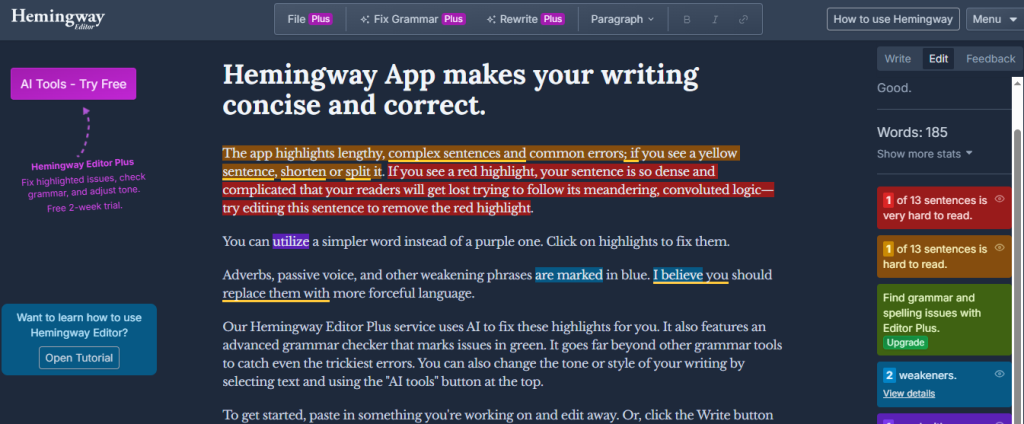
I’ve been using Hemingway as my final polish tool before publishing anything. It’s an easy-to-use editor that trims the fluff and hard-to-read content and keeps my content sharp and clear.
Key Features:
- Highlights readability issues
- Grade your writing level
- Fixes passive voice, run-ons, and complex phrases
Pricing: Free
18. Hootsuite Insights (for analytics)
Hootsuite Insights helps in tracking how brands are performing online, and it makes analyzing conversations and competitor trends so much easier. You can quickly see what people are saying, how they feel about it, and make smarter content decisions.
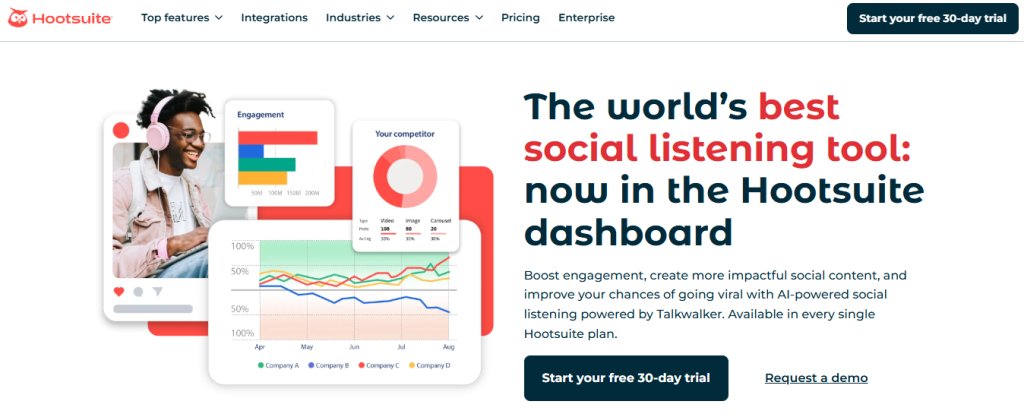
Key features:
- Unlimited post scheduling
- Best time to post suggestions
- AI tools for captions, hashtags, and content ideas
- A shared inbox for all social accounts
- Competitor sentiment analysis and benchmarks
Pricing: Standard – ₹1,915 per user/month
19. Reply.io’s AI Sales Email Assistant (for email replies)
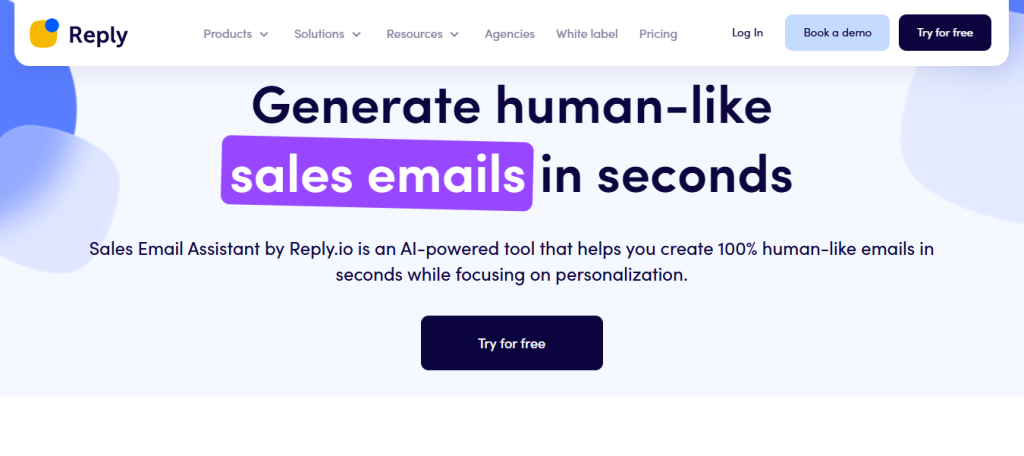
Reply.io is a great tool for managing sales outreach. It automates emails, follow-ups, and even warms up inboxes so my messages land in the right place. Reply.io saves time and improves response rates.
Features:
- Email, LinkedIn, calls & SMS automation
- Unlimited email warm-up for better deliverability
- No limit on email sends
- 50 live data credits per month
- Tools to avoid spam filters
Pricing: $59 per user/month
20. Brand24 (for media monitoring)
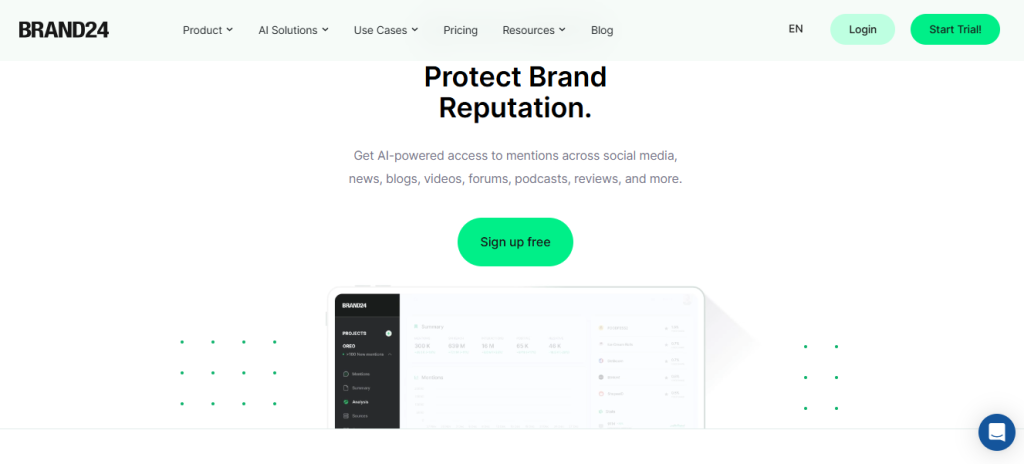
Brand24 helps in staying on top of what’s being said about a brand across the web. It’s easy to track sentiment, measure reach, and get alerts in real-time, so you never miss an important mention.
Key features:
- Track brand reach and sentiment
- Get real-time alerts for mentions
- Create reports for competitor analysis
- AI-Brand Assistant with helpful suggestions
Pricing: Starts at $199/month
21. Influencity (for influencer marketing)
Influencity makes managing influencer campaigns much more organized. From finding the right creators to analyzing results and handling payments, it’s all in one place.
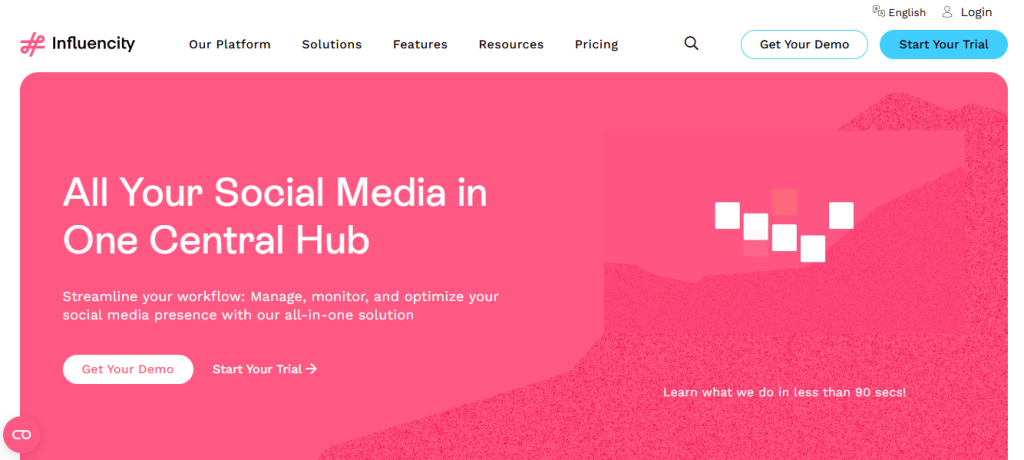
Top features:
- Discover and filter influencers based on campaign needs
- Analyze influencer data and performance
- Build and manage influencer lists
- Run outreach and campaigns from one platform
- Track results and handle payments easily
Pricing: Starts at $398/month
How to Use AI Tools in Your Marketing Workflow
To begin with, identify repeatable tasks in your marketing workflow. Whether it’s email copywriting, social scheduling, or customer replies, AI marketing tools can plug into each of these steps.
Use a tool like Jasper or ContentShake to generate SEO blogs, then turn that content into video snippets using tools like Tagshop or Crayo. Automate posting with Hootsuite Insights and track performance in real time. For outreach, tools like Reply.io handle personalized email follow-ups.
The trick is to map your funnel and assign the right AI tool to each phase—ideation, creation, distribution, and optimization.
Choosing the Right AI Marketing Solution
Not every AI tool fits every business, and that’s where most marketers get stuck.
Start by assessing your business size, budget, and the kind of campaigns you’re running. If you’re a solo creator or a lean team, go for tools with an easy learning curve and built-in automation.
Always look at ROI: is the tool saving you time and driving results? Integration is key too—your AI solution should work smoothly with the platforms you already use.
For example, Tagshop makes it effortless to auto-generate video ads just from a product URL, helping brands save hours on production while boosting ad engagement across TikTok and Meta.

Benefits & Challenges of AI in Marketing
Now that we have learned about the best AI marketing tools, let’s understand some of the key benefits as well as challenges that AI marketing tools bring to your workflow.
Benefits of using AI marketing tools:
- Speed: AI significantly helps you to create and publish content faster than ever.
- Personalization: Deliver tailored experiences at scale.
- Efficiency: Using AI, automate your repetitive tasks and free up creative time.
- Insights: Optimize your campaigns quickly and effectively using real-time analytics.
Challenges to keep in mind:
- Over-reliance: Too much automation can lead to generic content.
- Data privacy: Using customer data requires strict compliance.
- Lack of human touch: Emotional storytelling and brand voice can suffer.
Striking the balance:
Use AI marketing tools to handle the heavy lifting, but always keep space for human creativity, especially in strategy, messaging, and brand storytelling. Let AI do the repetitive work while you focus on making it feel real.
Must Read: Best performance marketing tools.
The Future of AI Marketing
AI is no longer a part of the marketing toolkit; it is the toolkit. Let’s take a peek into the future —
Generative AI is completely changing how creators craft content, such as copy, blogs, visuals, videos, and even campaigns built in minutes.
- The generative AI market size is expected to hit $66.89B in 2026, growing to $442.07B by 2031 with a CAGR of 36.99%.
Hyper-personalization goes beyond “Hello, Yuvraj.” Now, it’s about providing real-time personalized experiences based on customer behavior, mood, and needs.
- The hyper-personalization market is expected to grow from $18.9B (2023) to $74.82B by 2033 at a 14.75% CAGR.
AI avatars are taking charge as virtual influencers, customer representatives, and even brand storytellers. They can become the face and voice of your marketing without even hiring a human.
- The AI avatar market size is expected to grow from $0.80B in 2026 to $5.93B by 2032 at a CAGR of 33.1%.
AI voice assistants are making marketing conversational, helping brands to connect better with their customers through smartphones, cars, and wearable devices.
- The AI voice assistant market size is expected to soar from $33.47B in 2024 to $104.37B by 2032 at a CAGR of 15%.
All in all, marketing is evolving at lightning speed. If you’re not adapting, you’re falling behind. Staying ahead of the curve isn’t an option anymore — it’s survival. Keep reading as we explore the 20 must-have AI marketing tools in 2026 to stay ahead of the market.
Top Use Cases of AI in Marketing
From content creation to customer segmentation, AI is stepping up in every sector of marketing.
1. Content Creation and Copywriting
AI is helping content creators to streamline their content production across all formats. From blog posts to sales collateral, AI is powering all. In fact, 42% of marketers use AI for social media copy, 39% for visuals, and 35% for SEO.
2. Ad Generation and Optimization
Brands can effectively use AI to automatically optimize ads, creatives, and targeting in real-time. This, consequently, leads to boosted performance with less manual effort.
3. Email Marketing Automation
AI has changed email marketing forever! 44% of marketers take help from GenAI to write personalized, high-performing email copy, quickly and efficiently. To streamline your email marketing automation, using the best email marketing software can significantly improve efficiency.
4. Customer Segmentation and Targeting
AI helps brands discover up to 15x more actionable customer segments than traditional methods, enabling sharper targeting.
5. Chatbots and Customer Service
AI-powered automation significantly helps brands improve their service speed and customer satisfaction. Moreover, using AI also helps in slashing customer service costs by 30%.
6. Visual Content Creation
In 2026, AI marketing tools have changed how video editors and cinematographers used to create visual content. From UGC ads to product videos, AI has influenced every aspect of it. FYI, the AI video market is growing fast and is set to grow at a CAGR of 19.9% from 2024 to 2030.
Now that we have covered the top use cases of AI marketing tools, it’s time to acknowledge the best AI marketing tools in 2026 —

Conclusion
If you want to stay efficient and competitive in the marketing industry, AI marketing tools are not a nice-to-have but a must-have. From content creation to campaign automation, using the right AI tools can significantly improve your marketing.
And if you’re ready to level up your ad game, give Tagshop a try — it’s the best AI marketing tool to create scroll-stopping video ads from just a product URL.
Frequently Asked Questions
1. What are AI marketing tools?
They’re tools that use AI to help you create content, run ads, track performance, and more—basically, they make your marketing faster, smarter, and way less manual.
2. How can AI be used in digital marketing?
You can use AI to write blogs, design visuals, schedule posts, run email campaigns, and even analyze what’s working—all without spending hours doing it yourself.
3. What is the best AI tool for marketing?
There’s no single “best” one—it depends on your goal. For content, try Jasper. For AI ads, Tagshop is great. For scheduling and tracking, Hootsuite works well.
4. Is AI marketing software expensive?
Not really. Many tools offer affordable plans starting under $30/month, and some even have free versions. You can get a lot done without burning your budget.
5. How does AI improve customer targeting?
AI looks at user behavior, past data, and trends to help you send the right message to the right people, way more accurately than guessing.
6. Which AI tool is best for social media marketing?
Hootsuite is a solid all-rounder for scheduling, analytics, and DMs. Pair it with Tagshop for ad content, and you’ve got your bases covered.
7. What’s the difference between AI tools and traditional tools?
Traditional tools need manual effort, while AI tools can suggest, create, and even optimize content on their own. It’s like having an extra team member.
8. What are the best AI tools for marketers in 2026?
Tagshop, ContentShake, Jasper, Hootsuite, and Gumloop are top picks. Each helps with a different part of marketing—ads, content, automation, and analytics.
9. Can small businesses use AI tools effectively?
Yes! Most AI tools are super beginner-friendly and affordable. Even small teams can scale their marketing and save a ton of time using them.
